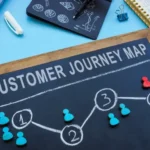Discover how personalization boosts brand awareness, helping startups stand out, build trust, and enhance visibility with their target audience. Furthermore, it explores the strategies and benefits that make personalization a game-changer for emerging businesses. HighlightsUnderstanding the importance of brand awareness for startupsExploring the concept of personalization in marketingThe impact of personalization on brand awarenessStrategies for…
RELATED ARTICLES
© NewInAsia.com 2024









